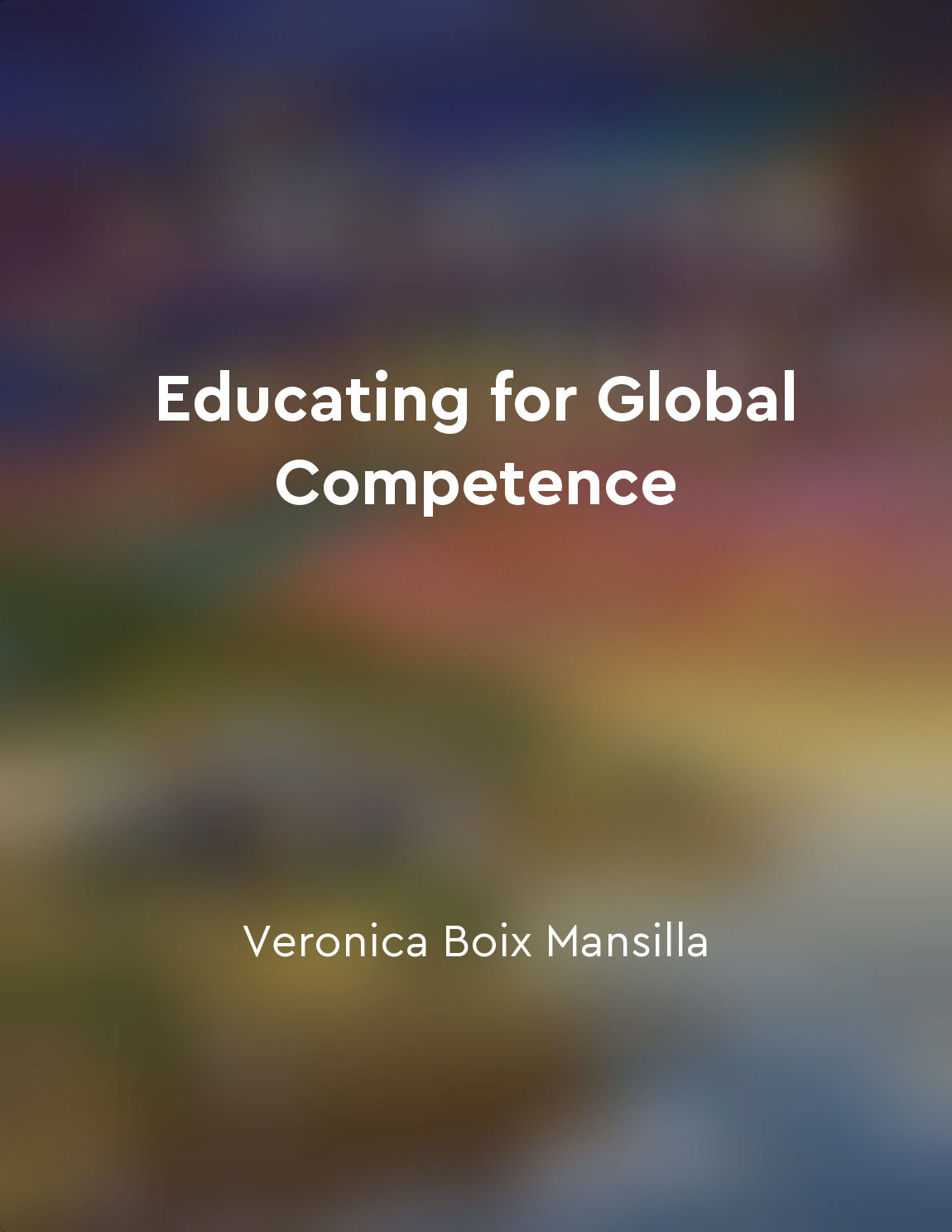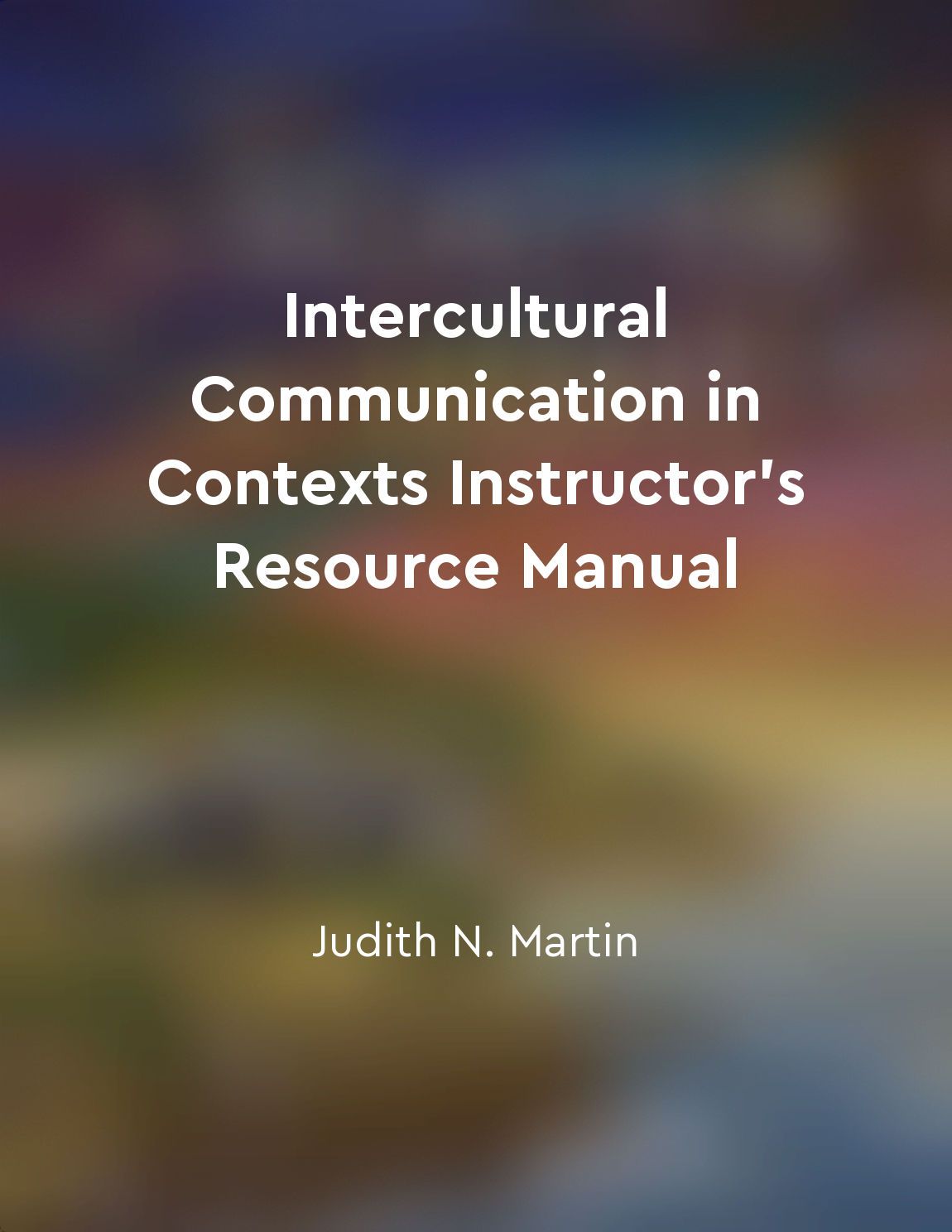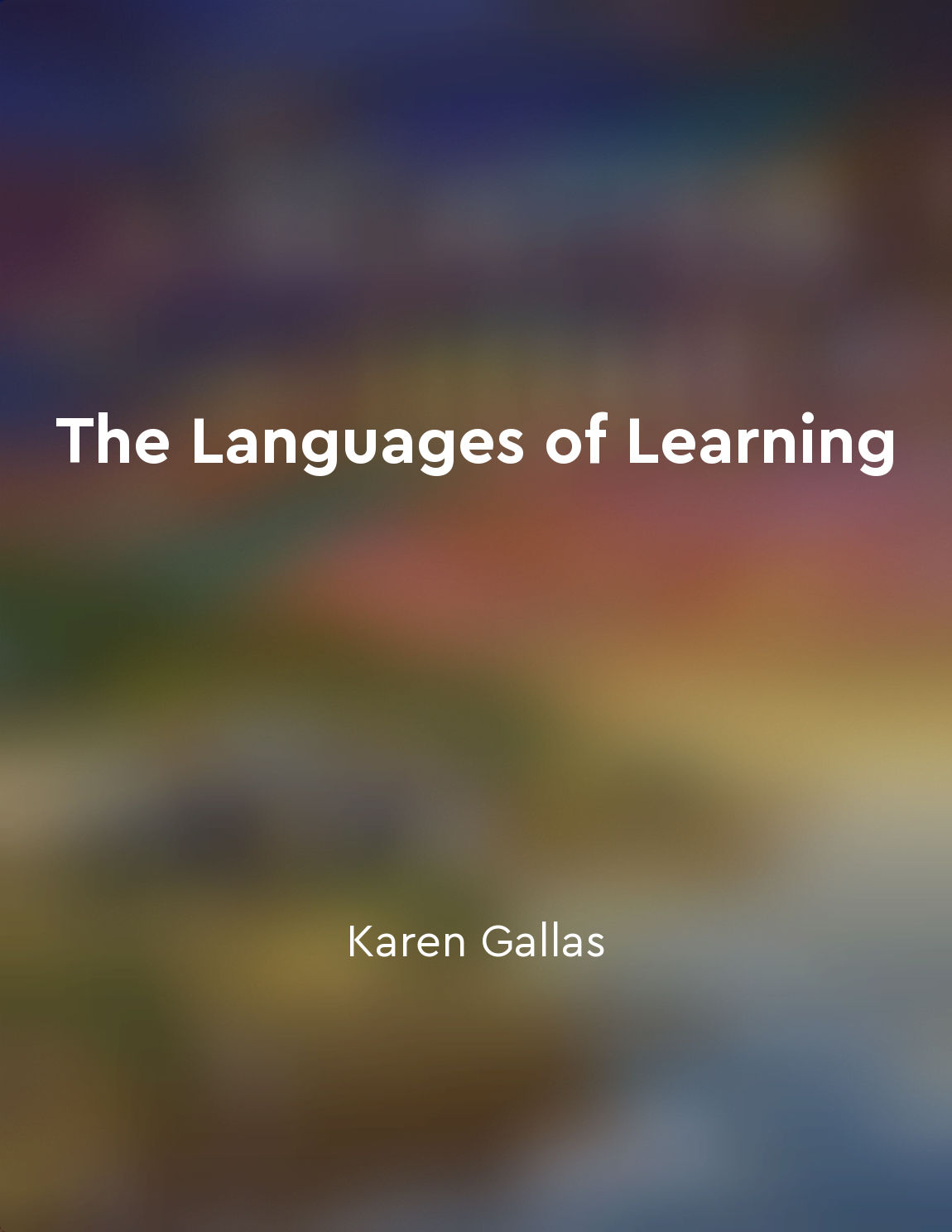Children's languages of learning reflect their cultural background from "summary" of The Languages of Learning by Karen Gallas
As educators, it is crucial to understand that children's languages of learning are deeply intertwined with their cultural background. This means that the way children approach learning, engage with material, and make sense of the world is heavily influenced by their cultural experiences and beliefs. When we acknowledge and respect these cultural differences, we can better support children in their learning journey. For example, children from collectivist cultures may value collaboration and group work, whereas children from individualistic cultures may prefer to work independently. Understanding these cultural preferences can help us create learning e...Similar Posts

Translation allows people to communicate across language barriers
Translation is a crucial tool that enables individuals to bridge the gap between different languages, thus facilitating communi...
Reading comprehension requires broad knowledge foundation
To comprehend what we read, we need a wide range of background knowledge. When we read a text, we must connect the words on the...
Creativity can be taught and cultivated
One of the fundamental beliefs that underpin the educational philosophy discussed in this work is the idea that creativity is n...
Knowledge fuels personal growth and development
Knowledge is the key that unlocks the door to personal growth and development. It is the fuel that propels individuals forward ...
Creativity should be nurtured in the classroom
The importance of nurturing creativity in the classroom cannot be understated. It is a vital aspect of education that allows st...
The environment can influence a child's behavior and communication
Children are like sponges, absorbing everything around them. They pick up not only words and actions but also emotions and atti...

Global competence requires a deep understanding of interconnectedness
Global competence demands a profound recognition of the complex web of interconnections that shape our world. To truly grasp th...
Listening is a skill that can be honed
The ability to listen effectively is not necessarily an innate talent; rather, it is a skill that can be developed and refined ...
Nurturing problemsolving abilities
The development of problem-solving abilities is a critical component of fostering students' thinking skills. By nurturing these...

Promoting dialogue can bridge cultural divides
The concept of promoting dialogue as a means of bridging cultural divides is crucial in the field of intercultural communicatio...

